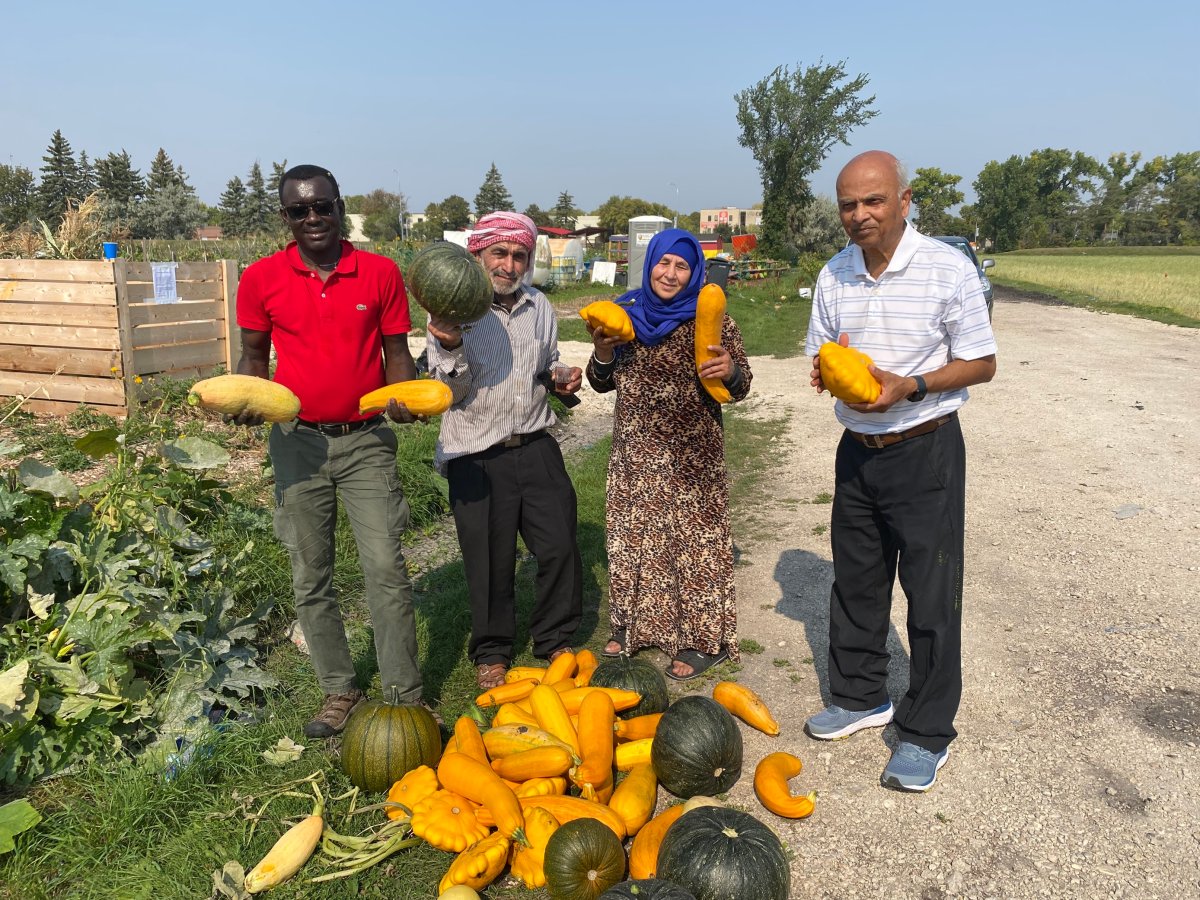On the University of Manitoba campus, 279 families grow their food in plots in the Rainbow Community Garden. The garden has been there for 15 years and in a time of major food inflation it’s only becoming more popular.

Winnipegger Gary Srivastava has been gardening at this location since 2010 and he says the work helps him stay healthy along with other benefits.
“The squash lasts longer in the basement, so it helps me to eat all winter long because they’re there and I don’t have to buy from the store.”
Additionally, coordinator Raymond Ngarboui says the garden helps many of its members stave off food insecurity.
“Most of them tell me that they save at least $100 a month from mid-June to the end of October,” Ngarboui says.
However, as prices of food get almost unmanageable for Manitobans, the garden has been dealing with a major increase in theft this year.

Ngarboui says organizers recently caught some people stealing from the garden but later learned they were single parents who could not afford fresh produce.
“Considering what those families or single mothers have been going through, we decided to, instead of punishing them, invite them to come to the garden, and what we do is take them to the community plots.”
He says they were able to take whatever they needed from the community plots and they were even offered the opportunity to help grow as well and even secured plots for some of their families for next year. “This can be considered a hub of healing,” he says.
Ngarboui says a compassionate approach is what the garden is all about because so many of these families are newcomers to Canada and it’s an important place to connect. Sharing the passion for the gardens can help many feel less isolated, he says
“You talk to them, you learn their culture, and their way of cooking something which I never did before, but you learn from them,” Srivastava adds.
The garden uses food as a universal language to help link people from all over the world in a time of crisis and uncertainty.
— with files from Global’s Katherine Dornian








Comments